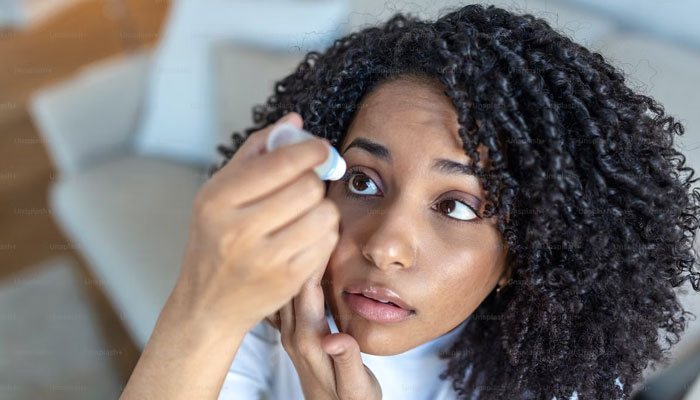
[ad_1]
If you are sick of your eyes burning and itching from dry eye disease, science might have an answer for you that will make it simple for you to treat your precious eyes and manage dry eye disease.
A research group based at Baylor College of Medicine in Houston, Texas, conducted a study in which oral administration of a commercially available probiotic bacterial strain was found to improve dry eye disease in an animal model.
The findings were presented at ASM Microbe 2023, the annual meeting of the American Society for Microbiology.
According to Medical Xpress, 1 in 20 Americans suffers from dry eye, a common condition in which the tears produced by the eye are insufficient to adequately lubricate the eye. It may result in inflammation, eye stinging and burning, vision blurring, and light sensitivity.
Untreated, severe cases may lead to surface damage to the eye. Applying eye drops, gels, or ointments is one of the most popular treatments. Bacteria in the intestinal tract are used in this novel, unconventional treatment.
Presenting author Laura Schaefer, PhD, of Baylor College of Medicine in Houston, Texas, said: “The ‘friendly’ bacteria that live in the human gastrointestinal tract have been linked to health and protection against disease in many parts of the body, including the gut, brain, and lung.”
She added: “It’s therefore not surprising that the gut microbiome also has effects on our eyes.”
Additionally, the research team’s earlier findings demonstrated that mice given gut bacteria from human Sjögren syndrome patients with severe dry eyes developed worse eye disease under dry conditions than mice given gut bacteria from healthy human patients.
This indicates that healthy individuals’ gut bacteria may aid in protecting the eye’s surface from dryness.
Moreover, probiotic bacteria with comparable protective properties could be used as a dry eye treatment option. The team looked into this by using a dry-eye mouse model and the probiotic bacterial strain Limosilactobacillus reuteri DSM17938, which can be taken orally.
A probiotic bacterial strain called DSM17938, which is commercially available and human-derived, has already shown protective effects on the immune system and gut in mice and humans, but it has not been examined in relation to eye health.
Antibiotics, which kill a lot of the “friendly” bacteria present in the gut, were first administered to mice. Following that, they were subjected to extremely dry conditions and given daily doses of probiotic bacteria or a saline solution as a control. The eyes were examined to check for illness after five days.
As a result, the team discovered that the mice that consumed the probiotic bacteria had corneal surfaces that were healthier and more intact.
Furthermore, the eye tissue of these mice contained a greater number of goblet cells, which are specialised cells that create mucin, a crucial component of tears. Together, these findings imply that the proper oral probiotic may aid in the treatment and management of dry eye symptoms.
[ad_2]
